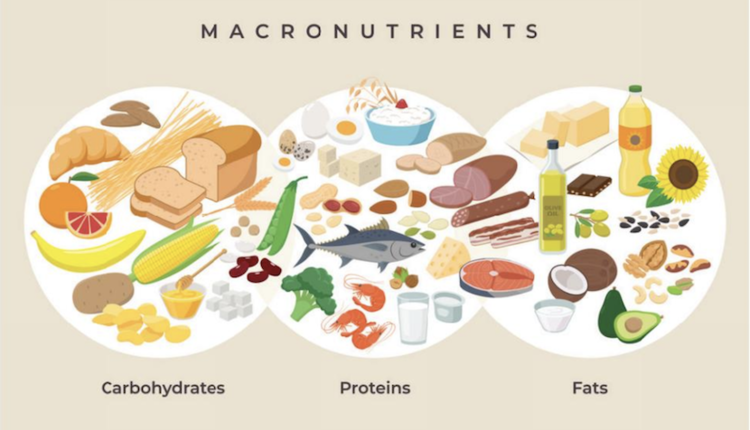
This article first appeared in the Spring 2023 issue of Personal Fitness Professional (PFP).
Did you know that a large percentage of your clients may regain all the weight they've lost within just one year? Would you like some evidence? A six-year study conducted on the popular “Biggest Loser” tv show participants who lost dozens of pounds through diet and exercise had their waistlines rebounded by the end of the study. Some contestants weighed even heavier than before.
Hunger Hormones
Weight rebound is primarily due to the role of weight-regulating hormones in our bodies.
Hormones are the chemicals that travel in our bloodstream to tissues and organs that facilitate almost all the body's processes, like growth, metabolism, sexual function and emotions. These chemical messengers play a vital role in weight loss and regain.
Ghrelin and leptin are two hormones that play a crucial role in weight maintenance, so stabilizing them is key to sustaining long-term healthy weight.
Ghrelin
Ghrelin, also known as the "hunger hormone," plays a crucial role in weight maintenance. This hormone is produced in the gut when it's empty. It travels in the bloodstream to our brain, signaling to the part of the brain called the hypothalamus that it's time to eat. As ghrelin levels increase, they encourage the body to store fat. Low levels of ghrelin minimize hunger and fat storage.
I know it sounds like an evil hormone, but it played a vital role in the survival of our ancestors, helping them store enough body fat for their daily high activity levels. Ghrelin follows the hunger cycle, rising before meals and dropping low about an hour after. Individuals over the healthy weight limit have lower levels of ghrelin but are more sensitive to it.
Ghrelin levels rise with weight loss. One of the primary reasons sustained weight loss becomes complicated is because restricting calories leads to increased ghrelin levels, making us hungry. However, certain eating habits discussed later in this article can help control ghrelin.
Just like ghrelin signals hunger, another hormone signals satiety to our brain.
Leptin
Ghrelin's nicer sister is Leptin, a hormone made by our body's fat cells that decrease our appetite. Leptin in our bloodstream travels to the hypothalamus and signals us to stop eating.
The higher number of fat cells the body has, the higher the amount of leptin in the body. This appetite-suppressor hormone's levels are paradoxically lower when you're lean and higher when you've more fat cells.
The answer to the obesity epidemic should be easy. Just give overweight clients leptin, and they will get thinner. It's not that easy!
Scientists studied the effect of leptin on obese mice. They were injected with leptin and were expected to decrease body weight. However, to scientist’s surprise, the mice didn't lose weight because the obese mice were Leptin tolerant.
Scientists studied the effect of leptin on obese mice. They were injected with leptin and were expected to decrease body weight. However, to scientist’s surprise, the mice didn't lose weight because the obese mice were Leptin tolerant.
This research showed that leptin tolerance is the main contributor to obesity. When we eat more than our body's daily energy needs, we increase leptin. When our body has too much leptin due to higher amount of fat cells, leptin signals to the brain stops working. Our brain mistakenly thinks that the body is starving and sends a false sign to eat more and conserve energy.
When we lose weight temporarily, our leptin resistance doesn't reverse. Hence our clients who lose weight end up gaining back the weight they lost. This is the chief underlying mechanism of yo-yo dieting.
Treating the hormonal imbalance of these hunger hormones means considering many factors like obesity, health conditions, diet, sleep and lifestyle habits that throw our hunger hormones out of whack.
How to Stabilize Hunger Hormones
Here are some easy science-backed tips that you can recommend to your clients to stabilize their leptin and ghrelin levels. Stable hunger hormones minimize cravings, increase satiety and improve leptin resistance.
- Avoid Crash Diets — Staying conservative with calorie-cutting is the best way to lose weight. Severe calorie-restrictive diets increase ghrelin production. Research on obese individuals following a very low-calorie diet increased ghrelin in their bloodstream considerably. Prescribe moderate calorie reduction to your clients during the weight loss coaching.
- Incorporate High-Intensity Interval Training (HIIT) — The best form of exercise to modulate ghrelin levels is HIIT and resistance training. HIIT reduces ghrelin and suppresses appetite, while resistance training helps gain muscle, increasing human growth hormone production and hindering ghrelin production.
- Eat More Protein — Foods rich in protein and healthy fats like chicken, fish and tofu at each meal will help your clients to fight hunger. These macronutrients slow the digestive process keeping us satiated for more extended periods which keeps ghrelin levels low.
- Consume Resistant Starches — Eating foods rich in resistant starch, a carbohydrate resistant to digestion and supports healthy gut bacteria, suppresses appetite by boosting leptin function. Lentils, oats and sweet potatoes are rich in resistant starch.
- Fiber Is Our Friend — Consume fiber-rich nutritious vegetables like brussels sprouts, broccoli, spinach and squash. These vegetables fill our stomachs with fiber and water, dropping our ghrelin levels.
- Limit Fructose in Diet — Fructose that is found in packaged food has a marked negative effect on hunger-regulating hormones. It increases ghrelin production. Avoiding fructose intake for your clients will pay huge dividends.
- Eat Omega-3 Rich Foods — Foods rich in omega-3 fats help the functioning of leptin your body. Eating healthy sources of Omega-3 like salmon, nuts, flaxseeds, egg yolks and avocados reduces ghrelin levels by increasing satiety.
- Eat Often — Recommend eating frequent meals and snacks to your clients. Eating regular meals and snacks throughout the day keeps leptin and ghrelin levels stable. Mini meals help satisfy the appetite and provide nutrients to the body throughout the day.
- Manage Stress — Promote stress-reducing activities like meditation, yoga, massage and walking in nature. Chronic stress stimulates ghrelin production. Partner with wellness professionals who are experts in stress reduction modalities. It will help you to cross-promote each other's business and can be a great way to enhance your professional network.
- Get Enough Sleep — Sleep deprivation results in hunger and hormonal imbalance of satiety hormones. Just two hours less sleep per night leads to higher ghrelin levels and excessive sugar cravings. Reduced amount of sleep is also negatively correlated with leptin levels.
Achieving sustainable weight loss is possible. Our hunger hormones respond best to a healthy lifestyle. Focusing on healthy habits and creating an environment that encourages consuming healthy foods, reducing stress and moving our bodies can lead to long-term healthy weight.
Aesha Tahir is an exercise scientist and has many years of experience in the fitness industry as a personal trainer, professional educator and entrepreneur. She is the founder and operator of ToneAndStrengthen.com. She has helped many clients reach their fitness goals and attain better posture. Aesha is also guest DEI columnist for PFP. Follow her on IG @tone_and_strengthen.




















